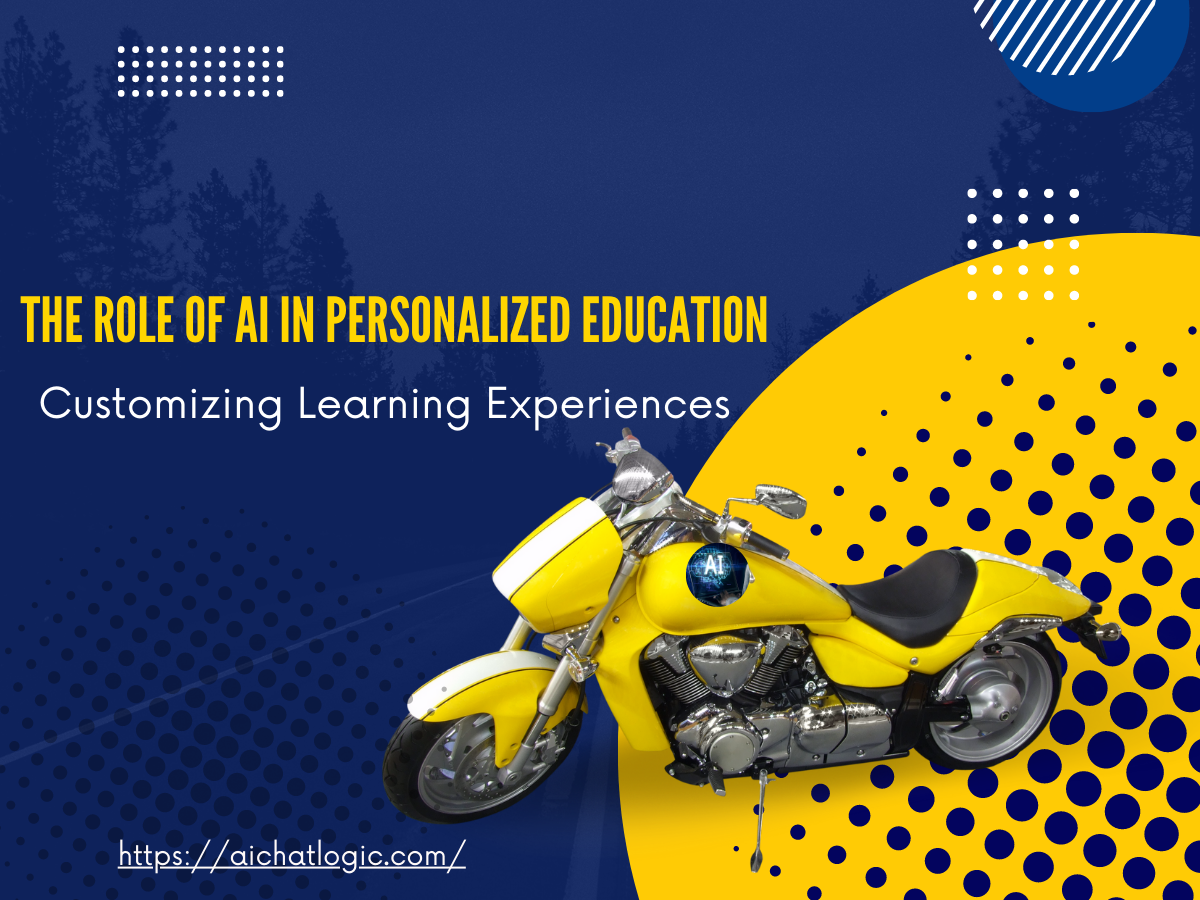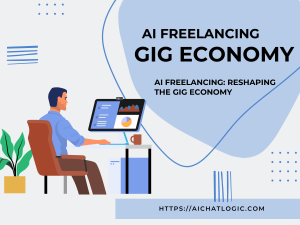1. Introduction
Education plays a vital role in shaping the future of individuals and societies. With advancements in technology, AI has emerged as a powerful tool that can enhance the learning process and make education more efficient and effective. Personalized education, in particular, focuses on customizing instructional approaches to meet the unique needs and preferences of learners. By leveraging AI, educators can create Customizing learning experiences that empower students to reach their full potential.
2. Understanding Personalized Education
Personalized education aims to address the diverse learning styles, paces, and abilities of students. It recognizes that each learner is unique, with individual strengths, weaknesses, and interests. AI assists in this process by collecting and analyzing vast amounts of data, such as student performance, learning patterns, and preferences. This data-driven and customizing approach enables educators to create personalized learning paths, curricula, and activities tailored to each student’s specific requirements.
3. Advantages of Personalized Learning with AI
a. Enhanced Engagement: AI-powered educational tools can captivate students’ attention by providing interactive and immersive learning experiences. By incorporating gamification elements, virtual reality, and simulations, AI fosters engagement and motivation.
b. Adaptive Learning: AI algorithms adapt the content, difficulty level, and pace of learning materials based on individual progress and performance. This adaptive approach ensures that students receive the right amount of challenge and support, optimizing their learning outcomes.
c. Targeted Remediation: AI identifies areas where students may struggle or need additional support. It can offer personalized remedial resources, targeted practice exercises, and real-time feedback to address learning gaps and promote mastery.
d. Individualized Feedback: AI algorithms analyze student responses, providing timely and constructive feedback. Students can receive immediate insights into their strengths and weaknesses, enabling them to make informed improvements and monitor their progress.
4. AI-Driven Adaptive Learning Platforms
AI-driven adaptive learning platforms are revolutionizing the traditional classroom setting. These platforms utilize machine learning algorithms to analyze individual learning patterns, preferences, and performance. By leveraging this data, adaptive learning platforms deliver Customizing content, adapt instructional strategies, and recommend appropriate resources to students. They create a dynamic and tailored learning experience that maximizes engagement and knowledge retention.
5. Virtual Tutors and Intelligent Assistants
Virtual tutors and intelligent assistants powered by AI offer personalized support outside the classroom. These digital companions provide students with on-demand assistance, answering questions, explaining complex concepts, and offering guidance. Virtual tutors can adapt their teaching methods based on individual learning styles, adapting their approach to suit each student’s needs. They provide personalized attention and support, fostering independent learning and self-paced education.
6. Data-Driven Insights for Educators
AI provides educators with valuable insights into student performance, progress, and areas of improvement. By analyzing vast amounts of data, AI algorithms generate comprehensive reports and analytics. Educators can leverage this information to identify learning trends, modify instructional strategies, and make data-informed decisions. Data-driven insights enable educators to offer targeted interventions and personalized guidance, ultimately enhancing student learning outcomes.
7. Ethical Considerations and Privacy
While AI presents numerous benefits in personalized education, it also raises ethical considerations and privacy concerns. Safeguarding student data and ensuring data privacy is crucial. Educational institutions must establish robust policies and frameworks to protect student information and ensure responsible AI usage. Transparency, informed consent, and maintaining strict security measures are essential for fostering trust in AI-powered educational systems.
8. Challenges in Implementing AI in Education
Implementing AI in education comes with its own set of challenges. Limited access to technology, inadequate infrastructure, and training gaps among educators can hinder the widespread adoption of AI in classrooms. Additionally, the need for continuous updates and advancements in AI algorithms and platforms poses ongoing challenges for educational institutions. Addressing these obstacles requires collaboration among policymakers, educators, and technology providers to create an enabling environment for AI integration in education.
9. Future Prospects and Implications
The future of personalized education lies in the further development and integration of AI technologies. As AI continues to evolve, it holds tremendous potential for transforming education. From advanced adaptive learning platforms to intelligent tutoring systems, the role of AI will expand, enabling highly tailored, data-driven, and personalized learning experiences. AI will empower educators, students, and institutions to unlock new frontiers in education and prepare learners for the challenges of tomorrow.
10. Conclusion
AI is revolutionizing personalized education by customizing learning experiences and catering to the unique needs of students. Through adaptive learning platforms, virtual tutors, and data-driven insights, AI enhances engagement, tailors instruction, and fosters individualized learning. However, ethical considerations and challenges must be addressed to ensure responsible and inclusive implementation of AI in education. By embracing AI’s potential and leveraging its capabilities, educators can create a future where personalized education empowers learners to achieve their full potential.
FAQs (Frequently Asked Questions)
- What is personalized education?
- Personalized education is an approach that tailors instructional methods and content to meet the individual needs and preferences of learners.
- How does AI enhance personalized learning?
- AI enhances personalized learning by analyzing data, adapting content, providing individualized feedback, and fostering engagement through interactive experiences.
- What are adaptive learning platforms?
- Adaptive learning platforms utilize AI algorithms to create Customizing learning paths, adapt instructional strategies, and recommend resources based on individual student data.
- How can AI benefit educators?
- AI provides educators with data-driven insights, enabling them to identify learning trends, modify instructional strategies, and offer targeted interventions for students.
- What challenges are associated with implementing AI in education?
- Challenges include limited access to technology, infrastructure constraints, training gaps among educators, and the need for continuous updates and advancements in AI systems.
- What is the future of personalized education with AI?
- The future entails further integration of AI technologies, enabling highly tailored, data-driven, and personalized learning experiences for students.
- How can AI ensure data privacy in personalized education?
- Maintaining strict security measures, transparency, and informed consent are essential for safeguarding student data and ensuring responsible AI usage.
- How does AI foster engagement in personalized learning?
- AI fosters engagement through gamification elements, interactive experiences, virtual reality, and simulations that captivate students’ attention.
- What role do virtual tutors play in personalized education?
- Virtual tutors provide personalized support, answering questions, explaining concepts, and adapting their teaching methods to suit individual learning styles.
- How can educators make data-informed decisions using AI?
- AI generates comprehensive reports and analytics, providing educators with valuable insights into student performance, progress, and areas of improvement for informed decision-making.










+ There are no comments
Add yours